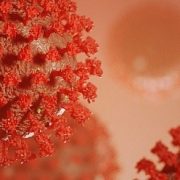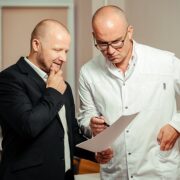Informační linka 1221
Linka je k dispozici v pracovní dny od 8 do 19 hodin a umožňuje také textový hovor s přepisem řeči a online tlumočení do znakového jazyka.
2. 1. 2024
Celý článek »
Ministerstvo zdravotnictví nově přechází na doménu mzd.gov.cz. Více informací.
Podkategorie:

Linka je k dispozici v pracovní dny od 8 do 19 hodin a umožňuje také textový hovor s přepisem řeči a online tlumočení do znakového jazyka.

Zde najdete přehled aktuální situace – např. počty provedených testů a vykázaných očkování, počty osob hospitalizovaných s onemocněním covid-19 a další data a statistiky.

Vyhláška, kterou se mění vyhláška č. 101/2022 Sb., o systému epidemiologické bdělosti pro onemocnění covid-19.